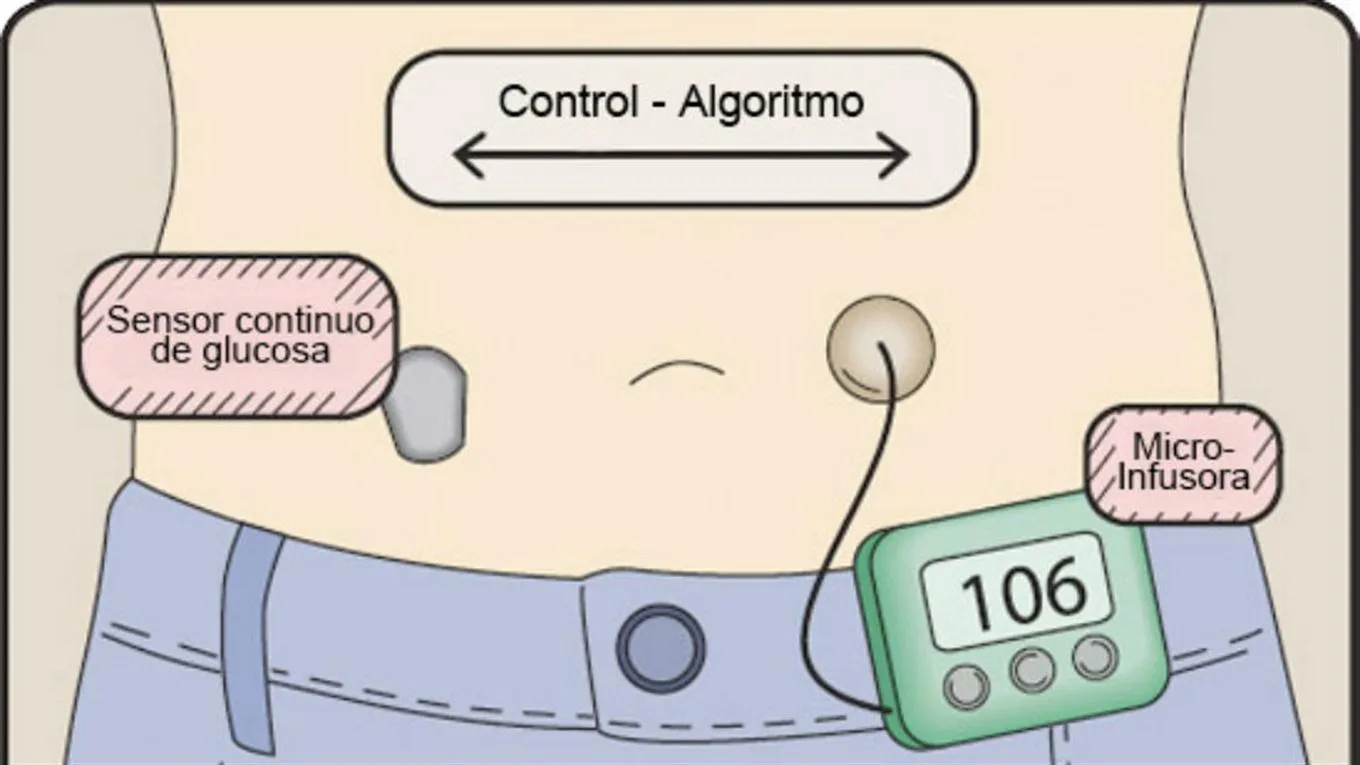He successfully concluded the clinical trial in patients with type 1 diabetes;It is expected that next year it will be marketed.
Very good news for those who suffer from type 1 diabetes emerged this week in Argentina, when local specialists and foreign scientists announced that the clinical test phase of the first "artificial pancreas", an Argentine development in experimentation worldwide.
The new device is capable of replacing the functioning of the human organ, in charge of modulating the liberation of insulin by interconnecting and coordinating the functioning of the continuous monitor and the glucose pump, a way to automatically regularly regulate the value of blood sugar, withoutNeed for the patient to perform the usual insulin corrections in the management of type 1 diabetes.
Approximately 1 in 10 adults in the country live with diabetes, according to the latest data disseminated by the World Health Organization (WHO).Type 2 diabetes is the most common form and type 1 is usually diagnosed in children and young people.In type 1 diabetes, the body does not produce insulin.Insulin is the hormone necessary to convert sugar, starches and other foods in the energy necessary for daily life.Only 5% of people with diabetes have this type.
"Ensuring that glucose levels do not rise too much (hyperglycemia) or lower too much (hypoglycemia) is very challenging for people with diabetes. Hypoglycemia is particularly worrying, since it can lead to loss of consciousness, seizures and, in severe cases, even to death, "one of the most prominent researchers in new insulin bomb technologies, Dr. Thomas Danne, director of the Department of General Pediatrics and Endocrinology of the Hannover School of Medicine, in Germany, in Germany, whichHe spoke during the recent XX Argentine Congress of Diabetes that developed weeks ago in Buenos Aires.
"Suspending insulin infusion before glucose reaches a low limit, it helps prevent a severe episode of hypoglycemia, turning this technology into a valuable tool to achieve better glucose control and can use both adults and children," he addedThe specialist.
The predictive insulin suspension technology is the first of its kind in the world and is designed to better protect people with low diabetes during the day and night with multiple low limit configurations that can be customized to individual needs.
Scientific advance
The scientific-technological advance, carried out by researchers doctors from the Technological Institute of Buenos Aires (ITBA) who added doctors from the Italian hospital and scientists at the University of Virginia, in the USA, it is thanks to a software installed on a smartphone,that performs "historical and predictive value calculations", in addition to storing the information and sending the data to a remote monitoring center that allows the doctor to follow the patient's evolution by phone.
"The project began at the ITBA six years ago and then doctors from the Italian hospital and two local universities and a foreigner were incorporated. The funds come from a private foundation called Nuria, very interested in this disease," I explained to La NacionDr. Ricardo Sánchez Peña, researcher at ITBA and the main technical reference of the project.
The specialist explained that the difference in local development with that of other countries is control algorithms."Both the glucose monitor and the insulin pump were already in the market, but the difference is in the software algorithm, said Sánchez Peña.
While the system is in an experimental phase and the fresh anmatIt approved the clinical test, technological development is expected to be a reality in the market from the following years.
"Today it is possible to avoid the chronic complications of type 1 diabetes, and the artificial pancreas will surely be the most effective tool to achieve it," said Dr. Luis Escolesbacher, principal investigator of the study and head of the Diabetes del Servia section at a press conferenceof endocrinology of the Italian hospital.
"The purpose of this scientific development is to achieve stable glycemic objectives between 70 and 180 mg/dl, which in a person who does not regulate insulin secretion according to glucose (in blood), will undoubtedly reduce the incidence of chronic complicationsIn the long term, "said the specialist.
"It is possible to measure glucose continuously and, individually or separately, infuse insulin according to this glucose through a pump. But the possibility that the pump automatically unfounds insulin according to glucose was a consequence that was emergingof the advancement of technology, and those who made a great contribution in this regard were the engineers, "said Desmbacher.
He added: "Achieve stable glycemic objectives in a person who does not have a pancreas that regulates insulin secretion and do it artificially will reduce the incidence of long -term chronic complications in these patients," adds the specialist."With the artificial pancreas it is possible to avoid chronic complications."
This was the first clinical trial test carried out in the country and in Latin America, within the framework of the global essay that is carried out by the conglomerate of scientific organizations that this device developed.It was in five hospital patients, who were hospitalized to be evaluated and constantly monitored for 36 hours.
how the device works
The device is composed of a continuous glucose sensor and an insulin infusion pump, both connected via Bluetooth to a cell phone that has a software installed with an algorithm that is taking out, by mathematical calculations, the insulin values that the patient needs.To do this, the patient must enter some data, such as what will eat and what time.
"We are already advancing in a second stage, for which they are working on a new control algorithm to increase autonomy and further reduce the need for patient intervention," said Desmbacher.
"The second stage of the project will be done with an algorithm creating purely and purely in Argentina", from a joint work of the ITBA and the National Universities of Quilmes and La Plata, "said Daniel Cherñavvsky, main advisor of the University of Virginia,who said that there is an even lower intervention of the patient so as not to enter so many data.
In Argentina there are about 300,000 people suffering from type 1 diabetes, so this announcement of a new medical device is a reason to celebrate, as well as patients also simultaneously test their effectiveness in the United States, Canada, Argentina, France, France, France,Italy and Israel.



